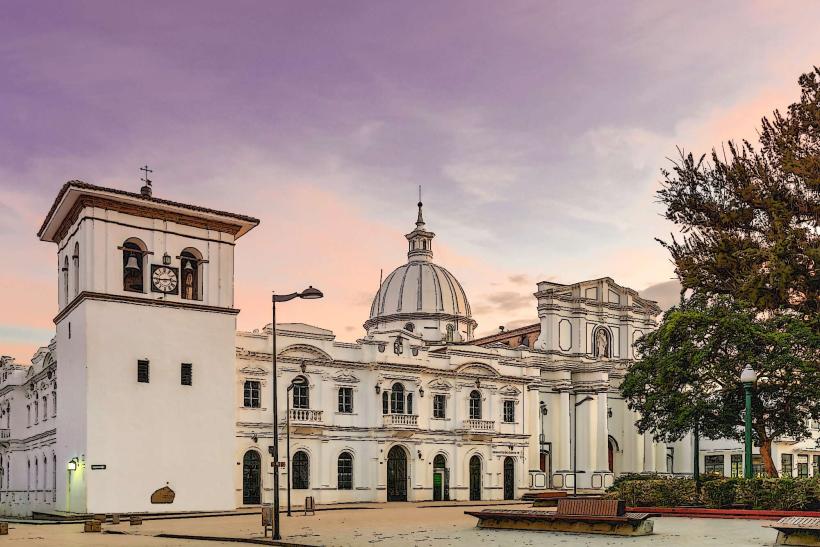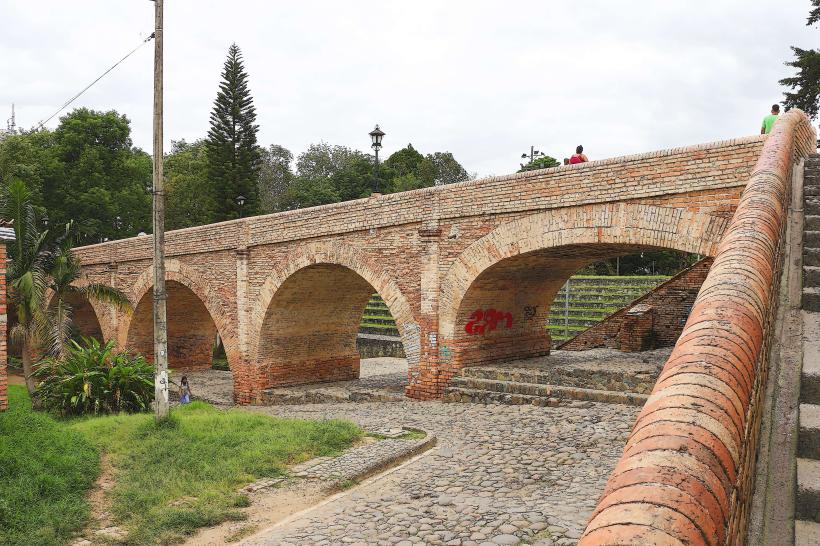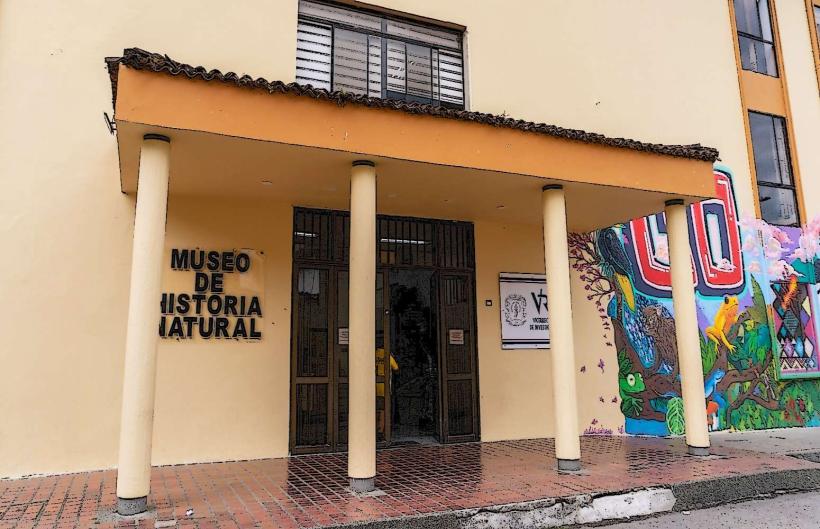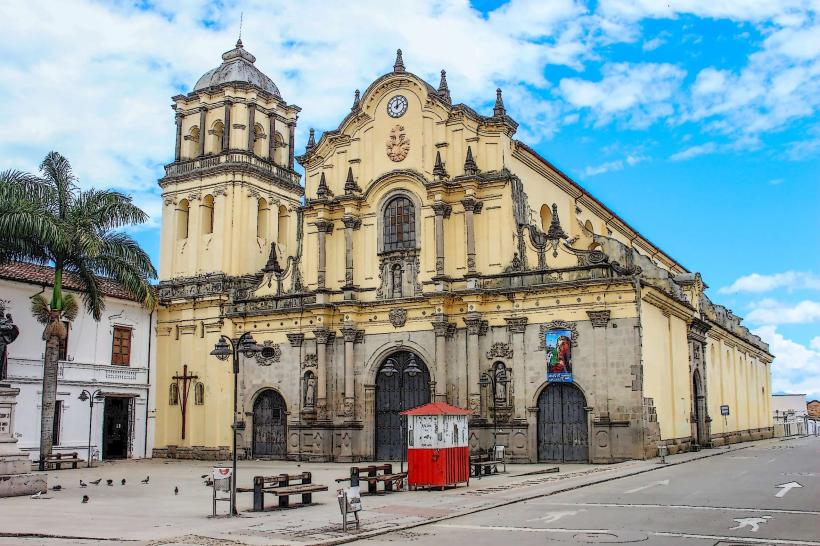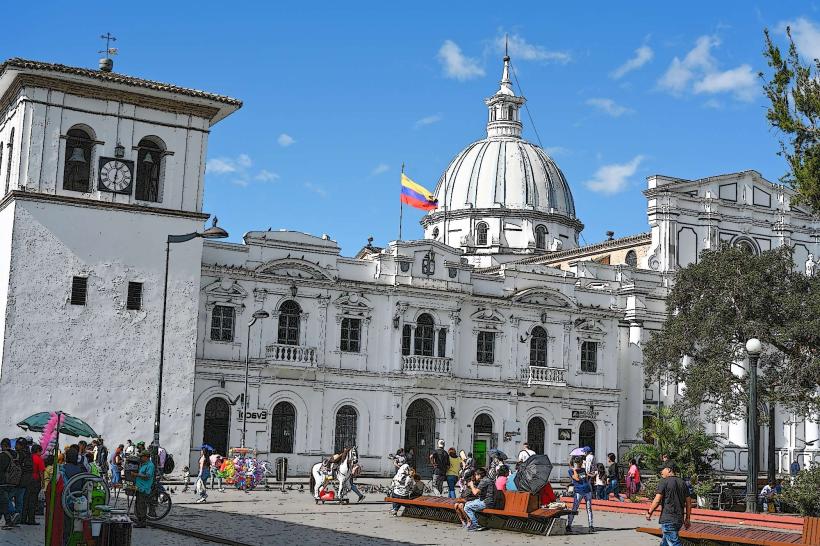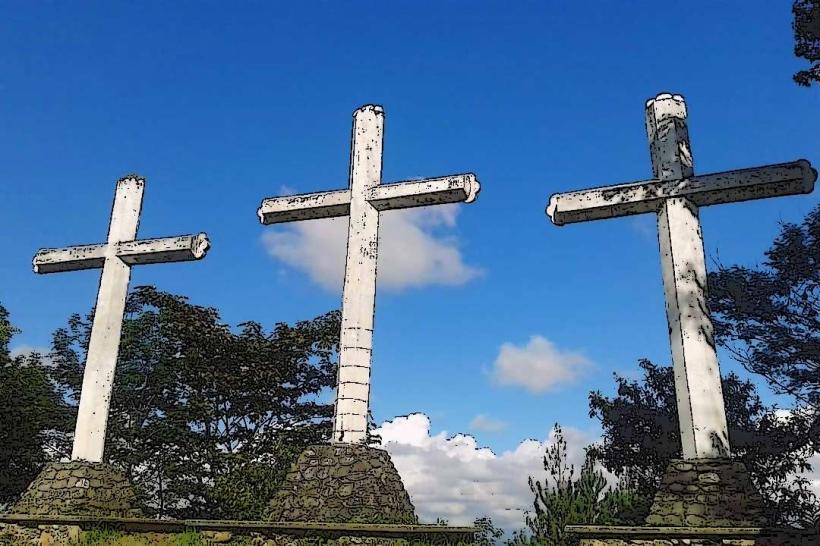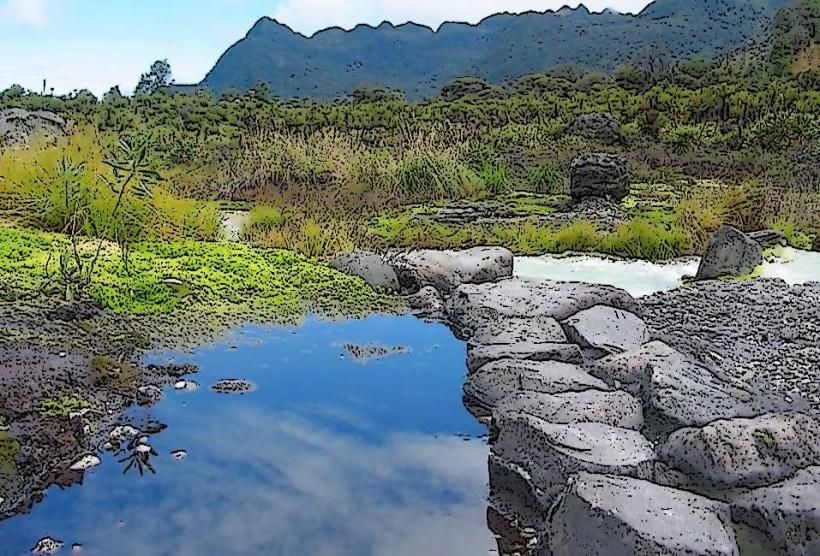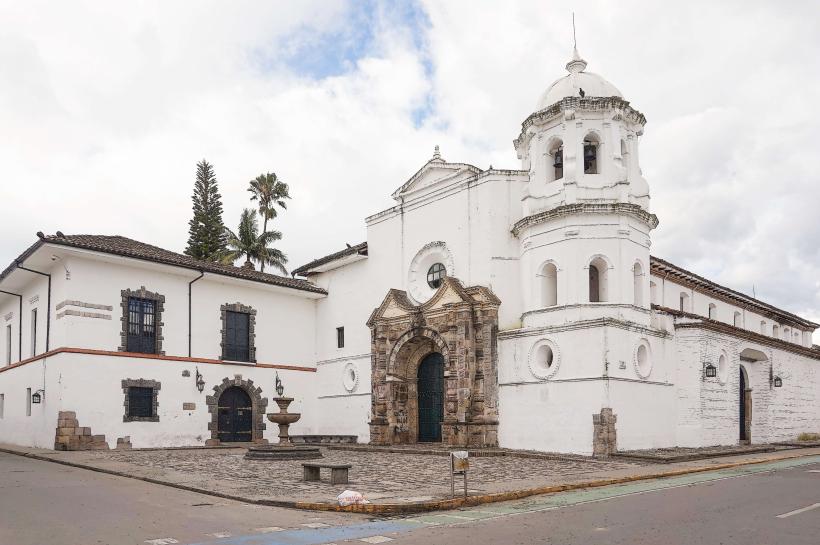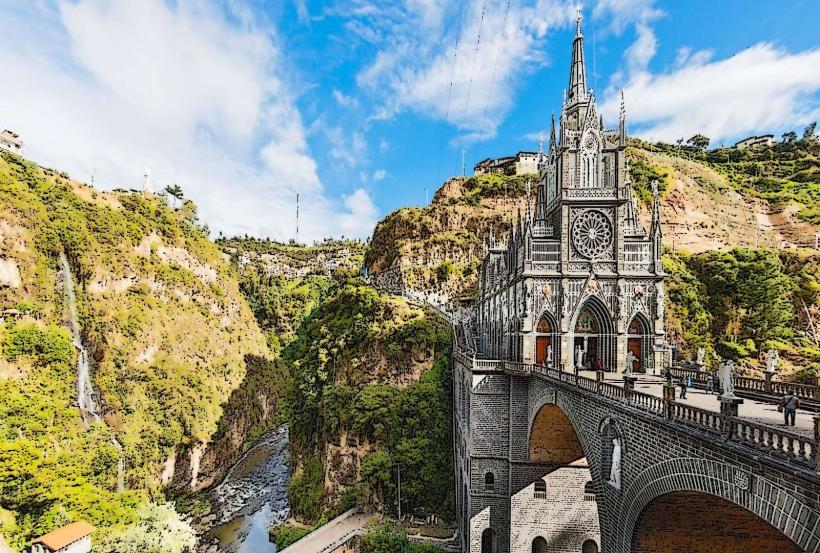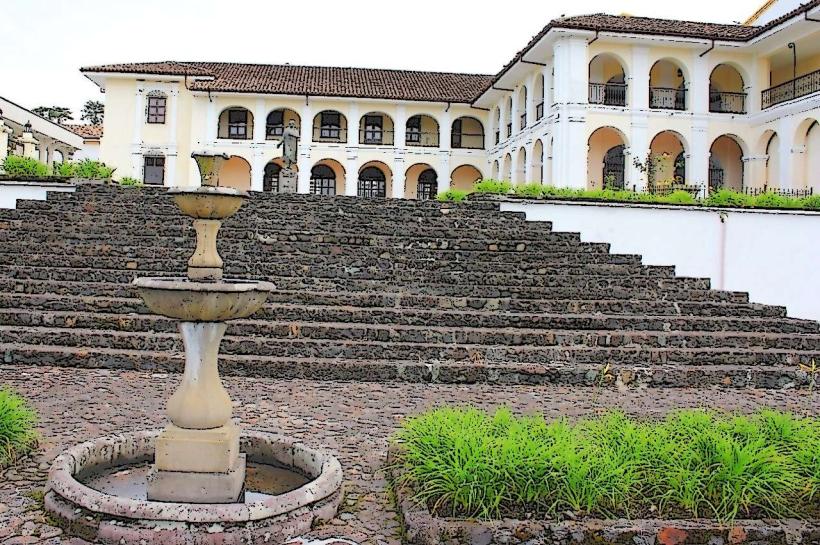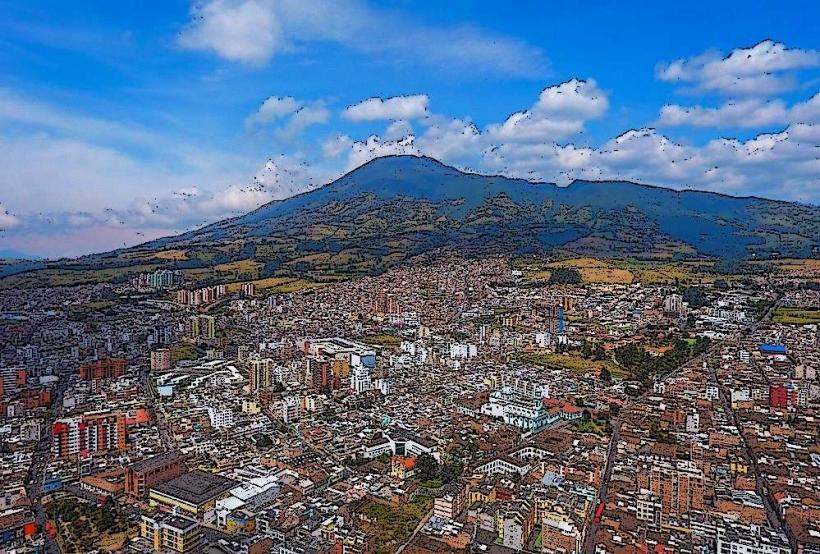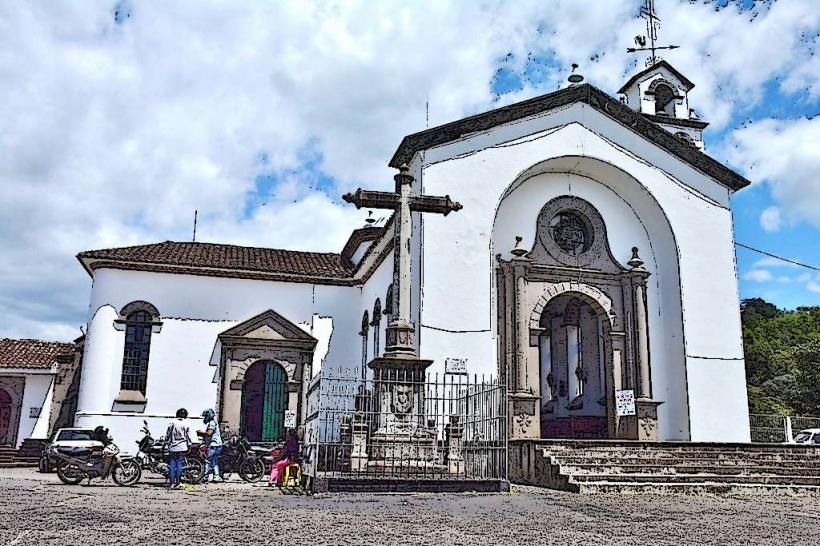Information
Landmark: Laguna de los GuácharosCity: Popayan
Country: Colombia
Continent: South America
Laguna de los Guácharos, Popayan, Colombia, South America
Laguna de los Guácharos is a cave system and natural reserve located in the municipality of Puracé, within the department of Cauca, Colombia.
Visual Characteristics
The cave system features extensive limestone formations, including stalactites and stalagmites. The surrounding landscape is characterized by dense cloud forest vegetation, with a high concentration of mosses, ferns, and orchids. The primary cave entrance is a fissure in a rock face, leading into a network of underground passages.
Location & Access Logistics
Laguna de los Guácharos is situated approximately 30 kilometers southwest of Popayán. Access is via the Popayán-Coconuco road (CR 17) for about 25 kilometers, followed by a 5-kilometer unpaved track requiring a 4x4 vehicle or a moderate hike. Public transport to the vicinity is limited; local buses operate to Coconuco, from where further arrangements are necessary. Parking is available at designated points near the reserve entrance, with limited capacity.
Historical & Ecological Origin
The caves are a product of karst topography, formed by the dissolution of soluble rock, primarily limestone, over geological time. The ecological significance lies in its status as a habitat for the Oilbird (Steatornis caripensis), a nocturnal, fruit-eating bird that nests and roosts within the caves. The reserve was established to protect this unique ecosystem and its inhabitants.
Key Highlights & Activities
Exploration of the main cave system is permitted via guided tours. Visitors can observe the Oilbirds in their natural habitat. Hiking trails are available in the surrounding forest, offering opportunities for birdwatching and appreciating the cloud forest environment. Photography of cave formations and wildlife is permitted.
Infrastructure & Amenities
Basic visitor facilities are present at the reserve entrance, including a small information center and restrooms. Shade is provided by the forest canopy. Cell phone signal is generally unreliable within the reserve and cave system. Food vendors are not present within the immediate vicinity of the reserve; visitors should bring their own provisions.
Best Time to Visit
The best time of day for observing Oilbirds is typically at dusk or dawn when they are most active. The dry season, from December to March and July to August, offers more stable weather conditions for hiking and cave exploration. Cave temperatures remain constant year-round.
Facts & Legends
The name "Guácharos" refers to the Oilbirds, whose indigenous name translates to "night bird." Local folklore suggests the caves hold ancient spirits, and it is considered disrespectful to disturb the birds or their environment.
Nearby Landmarks
- Puracé National Natural Park (10km Northeast)
- Termales de San Juan (12km Northeast)
- Volcán Puracé (15km Northeast)
- Cascada de Pubenza (8km Southwest)

